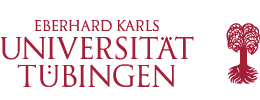Statistical Inference on Networks
Seminar for Masters students (Summer term 2018) by Debarghya Ghoshdastidar and Ulrike von Luxburg.Summary
Modelling and learning from networks is an important research topic in many scientific disciplines. Statistical analysis of social networks reveals the reasons for making new connections, or how information spreads among people. On the other hand, study of brain and genetic networks helps in understanding different biological processes.In this seminar, we learn different applications, algorithms and theory related to networks. In particular, we look at how machine learning can be used to solve various network analysis problems. The second, rather high-level intention of this seminar is to learn about, get used to and practice scientific work.
Schedule for presentation
Date: June 13, 2018 (Wednesday) Venue: Sand B116- 08:30 - 08:40 Introduction by Debarghya
-
08:40 - 09:20 Paper presentation
Garimella et al. Balancing information exposure in social networks. NIPS, 2017.
Presenter: Veronika Kohler / Talk chair: Sophie Laturnus -
09:20 - 10:00 Paper presentation
Lynn, Lee. Maximizing influence in an Ising network: A mean-field optimal solution. NIPS, 2016.
Presenter: Moritz Haas / Talk chair: Daniel Sacher - 10:00 - 10:20 Break
-
10:20 - 11:00 Paper presentation
Bruna, Li. Community detection with graph neural networks. arXiv preprint.
Presenter: Florian Martin / Talk chair: Bhaveshkumar Padmani -
11:00 - 11:40 Paper presentation
Kipf, Welling. Semi-supervised classification with graph convolutional networks. ICLR, 2017.
Presenter: Jan Niklas Boehm / Talk chair: Floyd Kretschmar - 11:40 - 12:40 Lunch
-
12:40 - 13:20 Paper presentation
Kondor, Pan. The multiscale Laplacian graph kernel. NIPS, 2016.
Presenter: Sophie Laturnus / Talk chair: Veronika Kohler -
13:20 - 14:00 Paper presentation
Karasuyama, Mamitsuka. Factor Analysis on a Graph. AISTATS, 2018.
Presenter: Kevin Schawbke / Talk chair: Timo Lucas - 14:00 - 14:20 Break
-
14:20 - 15:00 Paper presentation
Hamilton, Ying, Leskovec. Inductive representation learning on large graphs. NIPS, 2017.
Presenter: Floyd Kretschmar / Talk chair: Jan Niklas Boehm -
15:00 - 15:40 Paper presentation
De et al. Learning and forecasting opinion dynamics in social networks. NIPS, 2016.
Presenter: Daniel Sacher / Talk chair: Moritz Haas - 15:40 - 16:00 Break
-
16:00 - 16:40 Paper presentation
Liu et al. Global spectral clustering in dynamic networks. Proceedings of the National Academy of Sciences 115:5, 2018.
Presenter: Bhaveshkumar Padmani / Talk chair: Florian Martin -
16:40 - 17:20 Paper presentation
Ginestet et al. Hypothesis testing for network data in functional neuroimaging. Annals of Applied Statistics 11:2, 725-750, 2017.
Presenter: Timo Lucas / Talk chair: Kevin Schwabke - 17:20 - 17:30 Closing remarks by Ulrike
Structure of seminar
- Each student gets assigned one paper in the first meeting. At the end of the semester everybody has to give an oral presentation of the paper. Also, in the middle of the semester, every student has to hand in an essay that provides a critical review of the assigned paper.
- Writing reviews: before being published, scientific papers go through a peer review process. We will learn how such a review is supposed to look like, and practice to write a review. By the middle of the semester, everybody has to hand in a written seminar essay about the paper. It is supposed to summarise the contents, evaluate the scientific impact of the work, and provide a scientific review. In this essay, you will also have to judge the scientific impact of a paper. This is not so easy, in particular if you are new to the field. We will learn what are the tricks and tools to get at least some idea about it.
- Scientific discussions: Critically discussing scientific results is an important part of science, and it is similarly important to get used to ask questions in a talk (in a lecture as well, as a matter of fact). We are going to practice this in our block seminar. For each session, we will have a session chair who leads the discussion, the person who presents the talk, an "opponent" who plays the role of a devil's advocate (and who has read the paper as well), and many questions from the remaining participants.
Time plan
We hold the main part of the seminar as a block seminar at the end of June, with a couple of intermediate meetings.- April 17, 10:00-12:00, Sand A302: first meeting - overview of machine learning on networks, and to discuss organisation
- April 22: submit paper preferences (via online form)
- May 8, 10:00-12:00, Sand A302: general discussions about how scientific publications and peer reviews work; also, guidelines for the reviews to be submitted
- May 28: submit reviews for assigned paper and first version of slides (send PDF via email)
- June 12-13 (A104 Sand): all presentations as a block seminar
Prerequisite
Prior knowledge of machine learning is not needed, but some familiarity with machine learning may help. Your Masters program can be in computer science or maths or related areas.

